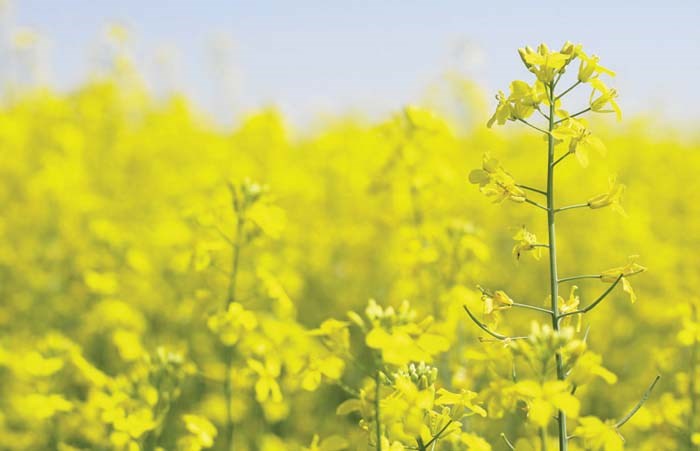Developed and grown in Western Canada, the seeds of bright yellow canola crops are crushed to produce healthy oil for cooking and baking.
The vast majority of our farmers choose to grow canola that has been modified to be resistant to herbicides. This allows farmers to treat their crops with herbicides to control weeds without harming the plant.
“Weed control is essential in canola production,” says Alberta farmer, Jay Schultz.
“Because if weeds take over they can take up a lot of yield by robbing canola of nutrients, space and sunlight.”
Biotechnology has played a major role in Canada’s robust canola industry. According to a report from CropLife Canada, canola yields have increased by 20 percentage points between 2000 and 2009, largely thanks to plant biotechnology.
Schultz says he uses two types of genetically
modified herbicide-tolerant canola to maximize his yields and protect his land from weeds. The two different types of canola are resistant to different kinds of herbicides, which allows him to alternate the weed control products he uses and this prevents the weeds from becoming resistant to any one herbicide.
“Having access to different types of herbicide-tolerant canola is important because it allows us to rotate the herbicides we use and stay ahead of resistance,” Schultz points out.
Herbicide-tolerant canola helps farmers grow more on existing farmland and offers important benefits for the environment. Since farmers can control weeds with an herbicide, it means they don’t have to till the fields with a tractor to remove them. The less that farmers have to disturb the soil with mechanical equipment, the better, says Schultz.
By reducing tillage, farmers dramatically improve the health of their soil – increasing organic matter, reducing erosion and increasing moisture retention.
Since adopting herbicide-tolerant canola, 86 per cent of producers say they have reduced soil erosion, according to the Canola Council of Canada. Genetically modified crops, including herbicide-tolerant canola, help Canadian farmers produce one of the safest and most abundant food supplies in the world – and do it in a sustainable way. This technology has helped to make an international success of our country’s canola industry, which is now at almost $20 billion a year in revenue.

